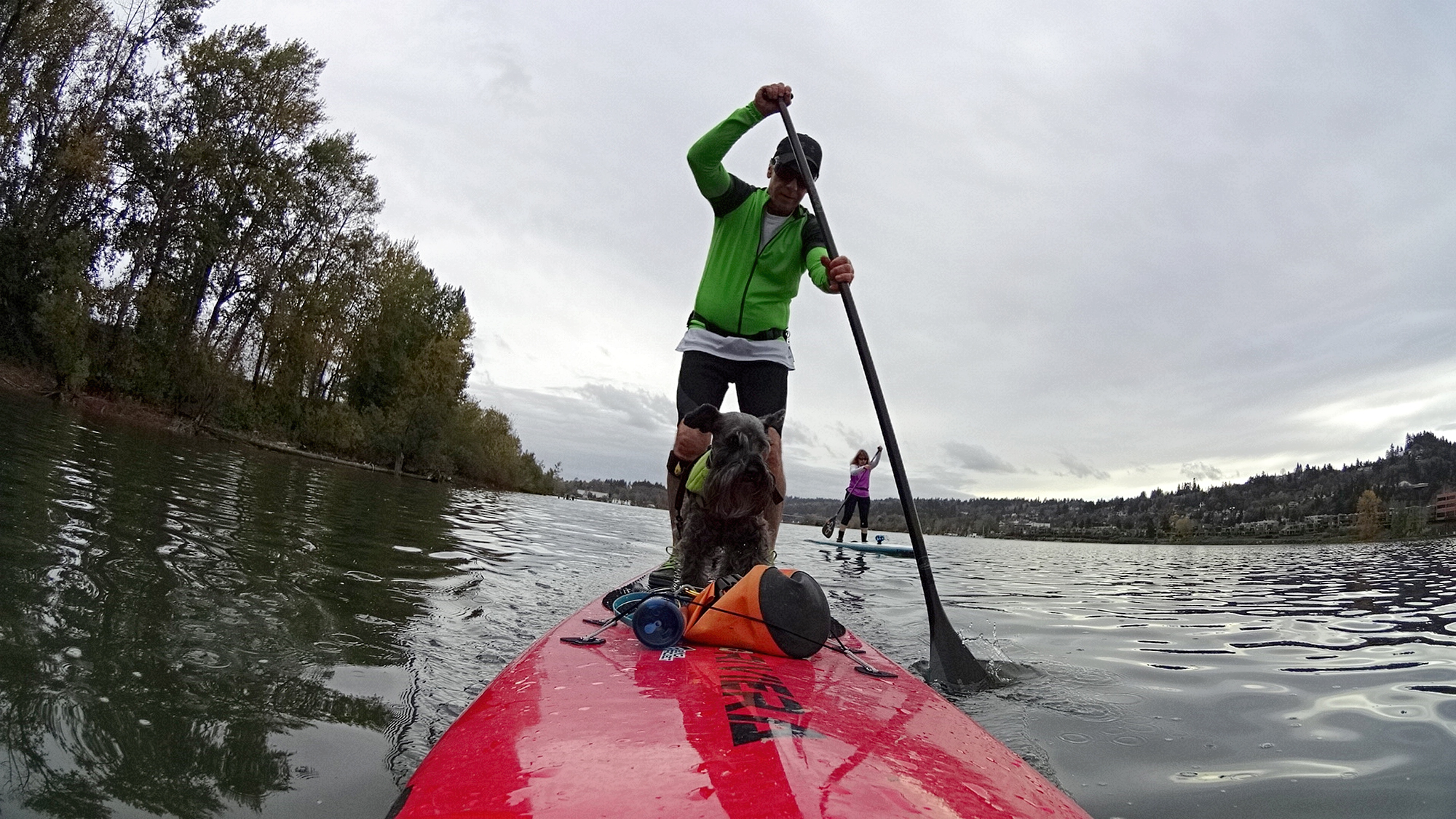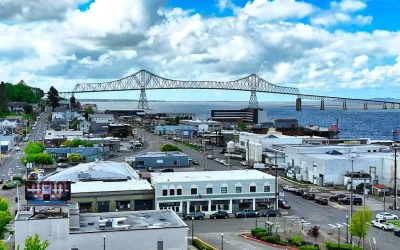Above Photo: Paddling The Willamette River in Portland, Oregon. Photo by Bill Reynolds via Flickr CC2.
You’ve probably heard of House Bill 2982—you know, the one that would have required a permit just to tie two inner tubes together and float them in the water. We wrote about it previously along with other news outlets, and as soon as that news broke, the backlash was immediate, and officials scrambled to clarify what the new Waterway Access Permit actually covered. The Oregon State Marine Board quickly walked back the inner tube example, saying the permit wouldn’t apply in that case after all. But the damage was done. The idea that even the most casual use Oregon's waterways might now require a permit struck a nerve and sparked a statewide push to roll the whole system back. If it seemed like the fight ended with that clarification, it didn’t. It’s just getting started.
What Is House Bill 2982?
House Bill 2982 is a new Oregon law meant to protect waterways from invasive species which was passed in 2025 with broad bipartisan support. It expands the state’s Waterway Access Permit requirement to include all non-motorized boats regardless of size.
What does that mean? Starting in 2026, even a small kayak or paddleboard will need a $20 annual permit to legally hit the water in Oregon.
Turning Anger Into Action - The Petition To Repeal Oregon’s Waterway Access Permit
In response to the new bill, a group called Let Us Paddle formed in late July, 2025. Their goal is to repeal not just this law but Oregon’s entire Waterway Access Permit system, which has been in place since 2020. They’ve started collecting signatures to put a measure on the 2026 statewide ballot. If successful, voters could decide whether or not to scrap the program altogether.
Do you love Oregon?
Sign up for monthly emails full of local travel inspiration and fun trip ideas. In each newsletter we'll share upcoming events, new things to do, hot dining spots and great travel ideas.
The movement isn’t just about the latest expansion. The new law became a tipping point for many outdoor users frustrated by years of rising fees, from fishing and hunting to state park visits. More permits than ever are required to access trails and campsites. For many, this new rule which requires a permit for even the cheapest inflatable boats, was the final straw.
A “float protest” is planned for August 9, 2025 at Foster Lake, where people can sign the petition while out on the water.
What the Law Actually Does
You can read the full text of the house bill and what it does here, but one of the main things people are upset about is that HB 2982 removes the previous rule that only boats 10 feet or longer need a permit. Starting in January 2026, any non-motorized craft including packrafts, stand-up paddleboards, kayaks and others will need one.
The goal of the law is to boost funding for aquatic invasive species prevention. Oregon’s boat inspection stations are being expanded, especially in high-risk areas like the Owyhee Reservoir. Lawmakers say this broader permit base is needed to protect Oregon’s lakes and rivers from species like zebra and quagga mussels, which have caused massive environmental and economic damage in other states.
Arguments On Both Sides
Opponents argue the program places an unnecessary burden on low-risk, human-powered recreation. They say it’s unfair to charge for small, low-impact boats that are unlikely to spread invasive species. Some see it as a “paddle tax” that discourages people from getting outside, especially youth groups, low-income families, and veterans.
Supporters, including the Oregon State Marine Board, say that aside from invasive species prevention, the fees also fund important projects. Since 2020, the Waterway Access Permit program has distributed over $4.6 million to improve non-motorized boating access, including ADA-friendly launches and kayak docks.
Next Steps In The Fight Over Oregon’s Waterway Access Permit
Let Us Paddle has already been cleared to collect signatures. The group must gather 117,173 valid signatures by July 2026 to qualify for the ballot. If the momentum continues, voters could soon weigh in on the future of Oregon’s boating permits—and the broader question of what it should cost to enjoy the outdoors.
What do you think about the new requirements for small boats and paddleboards? Will the $20 fee make recreational boating inaccessible to you or those you know? If so will you be attending any of the float protests and signing the petition? Do you approve of the new fees? Let us know and start up a conversation with those you know who enjoy recreational boating and paddle boarding in Oregon.












